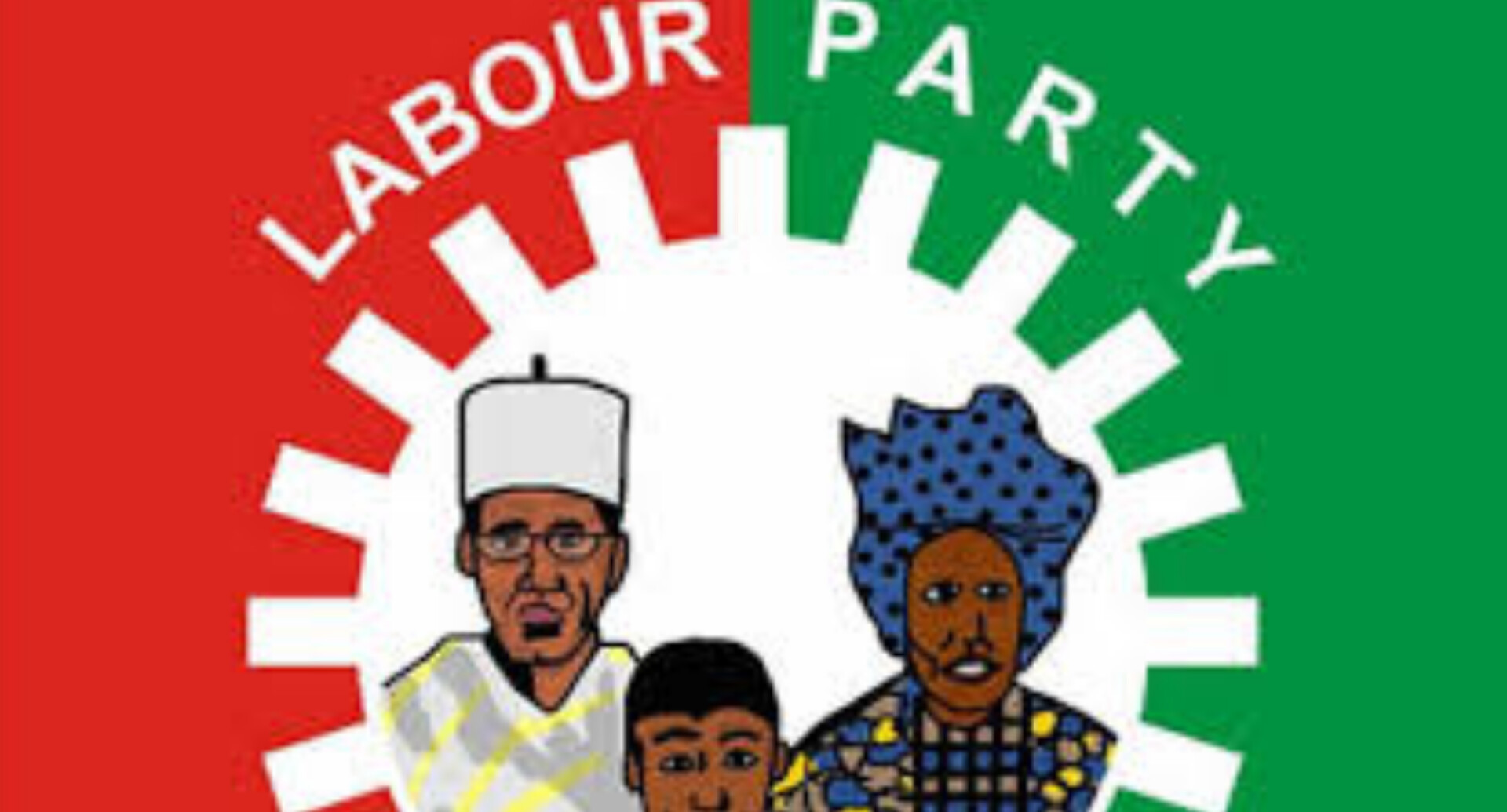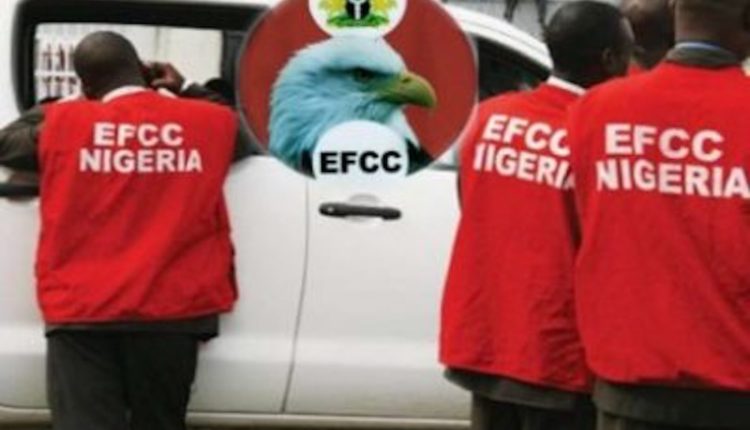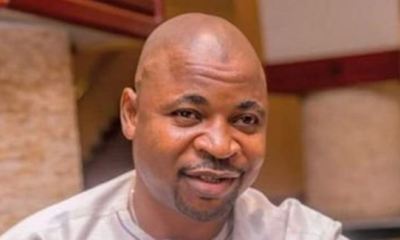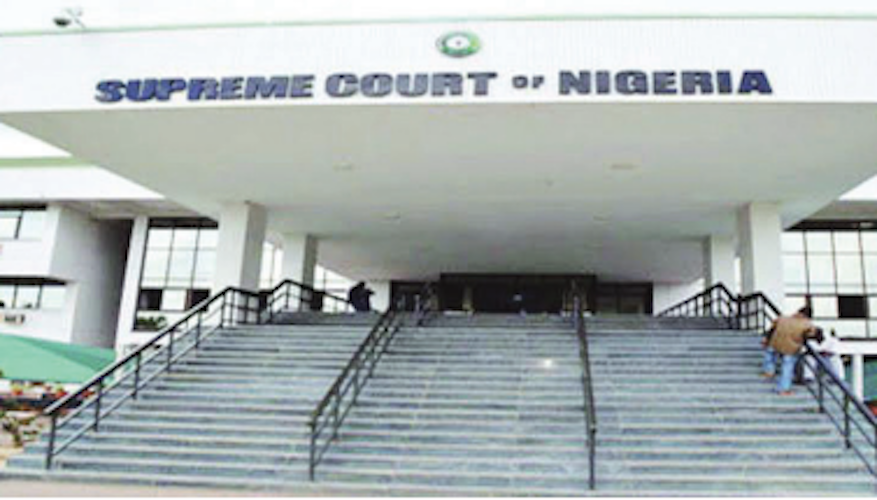Law
Imo Guber: LP tells S/Court to act decisively, uphold electoral laws, cancel polls

The Labour Party (LP), on Monday urged the Supreme Court to act decisively to uphold the electoral laws by cancelling the results of the 2023 Imo Governorship election, as announced by the Independent National Electoral Commission (INEC).
The National Publicity Secretary of the party, Obiora Ifoh, who gave the indication om Monday at a news conference in Abuja said the Party’s search for justice is in the greater interest of the people of Imo State and democracy.
Recall that the Court of Appeal Abuja, had dismissed the appeal by the Labour Party and its candidate, Athan Achonu for lack of merit.
It also dismissed the Appeal by the Peoples Democratic Party (PDP) and its candidate Samuel Anyanwu and the Allied Peoples Movement (APM) for also lacking in merit.
The appellants who were dissatisfied with the tribunal Judgment, had approached the court of appeal on grounds that the November 11, 2023 election, was invalid because of non-compliance with the provision of the Electoral Act.
The appellants also challenged Uzodimma’s qualification with an allegation that his WAEC Certificate of Education result, was forged.
But the court of appeal held that the appellants in their appeal, failed to prove the allegation of non-compliance as alleged.
The three-man panel led by Justice Bitrus Sanga also held that the appellants failed, to prove that the governor submitted a forged certificate.
continuing Ifoh at the conference said, “The importance of justice in the governance of Imo State cannot be overstated.
“Labour Party and its candidate in the November 2023 governorship election in Imo state, Senator Athan Achonu have one more chance in the Supreme Court to right the wrongs meted to the Imo electorates who are forced to tolerate a government they never wished for themselves.
“Recall, also that in 2020, Imo state was a victim of controversial decision that dramatically altered the political landscape of the state.
“Despite clear evidence of over-voting, which should have led to the cancellation of the election, the court handed the governorship to a candidate in the face of over voting.
“These decisions in both 2020 and 2023, not only contradicted the principles of fairness and transparency but also set a dangerous precedent that undermines the integrity of our electoral process.
“As we approach another Supreme Court judgment, the question of over voting rears its head again.
“If it scales through again, it means that over voting will become an unwritten law of electoral jurisprudence in Imo state.
“It is therefore imperative that the Supreme Court corrects this miscarriage of justice. The future of Imo State’s development hinges on the rule of law and the public’s trust in our judicial system.
Related News
“A just and fair resolution in the current case before the court will not only restore confidence in our democracy but also pave the way for genuine progress and development in Imo State.
“The people deserve a leadership that truly reflects their will, and the time for justice is now. “
Giving insights into why the party took the matter to the highest court in the land, Ifoh said, “First, the integrity of the electoral process is the cornerstone of any democracy, and in Nigeria, our electoral laws are designed to ensure that the will of the people is accurately reflected in election outcomes.
“Unfortunately, in the case of the recent Imo State governorship election, these laws were blatantly disregarded by both the election tribunal and the appeal court, leading to a grave miscarriage of justice.
“The issue at hand is clear: the total number of certified accredited voters for November 2023 governorship election, as certified by INEC, was just over 500,000.
“However, the total votes counted, which was used to declare the candidate of APC winner exceeded 700,000, resulting in an over-voting discrepancy of more than 200,000.
“We had raised this issue during the election as we had clear evidences of abuse of electoral practices including falsification and mutilation of result sheets, harassment of the Labour Party’s agents, snatching of ballot boxes and open vote buying.
“According to Section 53 of the Electoral Act 2010 (as amended), any election marred by over-voting should be canceled.
“This provision is unambiguous and does not leave room for alternative interpretations. The law was crafted to protect the sanctity of the electoral process and ensure that elections are free, fair, and reflective of the voters’ true choice.
“Regrettably, despite the overwhelming evidence of over-voting, both the election tribunal and the appeal court failed to apply this clear legal standard.
“ Instead, they chose to validate an election result that is fundamentally flawed and legally indefensible.
“This is not just a violation of the law but also a profound injustice to the people of Imo State, who deserve a leadership that genuinely reflects their will.
“The situation is eerily reminiscent of the Supreme Court’s controversial decision in 2020, where a similar issue of over-voting was overlooked, leading to the installation of a candidate who had initially placed third.
“Such judicial oversights undermine public confidence in the electoral system and threaten the very foundations of our democracy.
“The Supreme Court now has the opportunity to correct this injustice and restore faith in our legal institutions by upholding the law as it is written—clear, unambiguous, and without room for further interpretation.
“In yet another clear instance of miscarriage of justice, the petitioners in the Imo State governorship case faced significant obstacles in accessing crucial evidence, specifically the BVAS (Bimodal Voter Accreditation System) devices.
“Despite making formal requests for over 4,000 BVAS units, which were essential to prove their case of electoral malpractice, the petitioners encountered deliberate delays and obstructions.
“Only 30 BVAS units were eventually provided, and even then, only for partial inspection.
“Of utmost importance is that fact that the Imo State election took place in only 4,720 out of 4,758 polling units in Imo State.
“Labour Party has also noted that the direct implications of these rape on democracy could be the inability of the Imo citizens to submit and subject themselves to the present government which they believe was imposed on them.”
The LP Spokesman described the last four and half years of the Senator Hope Uzodinma administration as a disaster.
He reiterated that the socio -economic crises in the state assumed a dangerous height under his rule.
Ifoh maintained that under his rule, criminality has become the order of the day and the economic potentials of the state have completely frozen and the state has the inglorious record of being the worst in terms of infrastructure in the entire South East.
Speaking on what Imolites and the Labour Party expect from the court, Ifoh said, “The Supreme Court is expected to act decisively and uphold the electoral laws.
“Given the clear evidence of over-voting, which invalidates the election results according to the law, the Court should order the cancellation of the flawed election and mandate a fresh governorship election in Imo state.
“This action is essential to restore public trust and uphold the integrity of the judicial system.”
Law
EFCC Grants Bail to Two Kogi Officials, wants Yahaya Bello’s Fraud Case adjurned

The Economic and Financial Crimes Commission (EFCC) has granted administrative bail to two co-defendants, Umar Oricha and Abdulsalami Hudu, in a fraud case involving former Kogi State Governor, Yahaya Bello. The case, centered on charges of fraud totaling N101.4 billion, has been adjourned until November 27, 2024, by the Federal High Court in Abuja.
At the hearing before Justice Maryann Anenih, EFCC Counsel Jamiu Agoro requested an adjournment, noting that the 30-day compliance period for Bello’s summons, issued on October 3, had not yet expired. Agoro explained that the November 20 court date was inconvenient for the prosecution, and that seeking an arrest warrant would be premature as Bello still had a few days to respond to the summons.
Both the second and third defendants’ legal representatives supported the adjournment request.
Following this, Justice Anenih approved the EFCC’s request, extending the deadline for Bello’s appearance and authorizing service of the hearing notice to be sent to his last known address.
In a parallel development, the Federal Capital Territory (FCT) High Court in Maitama ordered a hearing notice to be posted at Bello’s residence on Benghazi Street, Wuse Zone 4, Abuja, and on the court’s notice board.
This step follows multiple missed court appearances by Bello since the public summons was issued, urging him to appear for arraignment on 16 counts related to the alleged fraud.
Justice Anenih emphasized the importance of due process, setting November 27, 2024, as the final date for Bello’s court appearance. This case has drawn attention to the EFCC’s efforts to enforce accountability among high-profile figures in Nigeria amidst allegations of large-scale financial mismanagement.
Law
Appeal Court Sacks MC Oluomo as NURTW National President, Reaffirms Baruwa’s Leadership

In a significant development, the Court of Appeal has annulled the appointment of Musiliu Akinsanya, popularly known as MC Oluomo, as the National President of the National Union of Road Transport Workers (NURTW).
The ruling upheld a previous ruling by the National Industrial Court, which had already recognized Tajudeen Baruwa as the rightful leader of the union.
The legal dispute surrounding the NURTW’s leadership has been ongoing, with tensions escalating within the organization.
Despite the court’s ruling in favor of Baruwa, MC Oluomo was recently elected by the Southwest Zone of the union during the Quadrennial Delegate Conference held last week in Osogbo, Osun State.
This election took place amid growing concerns and disputes within the union’s regional factions.
The Appeal Court’s decision is expected to settle the leadership question, restoring Tajudeen Baruwa’s position as the legitimate National President of the NURTW.
However, the union faces potential challenges in maintaining unity across its various regional branches, as supporters of MC Oluomo continue to advocate for his leadership.
This ruling marks a pivotal moment for the NURTW, as it works to stabilize its governance and address internal divisions that have led to several controversies and disputes over recent years.
Law
Supreme Court Rejects States’ Legal Challenge to EFCC’s Constitutionality

The Supreme Court of Nigeria has thrown out a lawsuit brought by several state Attorneys General challenging the constitutional validity of the Economic and Financial Crimes Commission (EFCC). The case, led by Kogi State, questioned the EFCC Act, arguing that it bypassed constitutional requirements regarding international treaties.
The seven-member panel, headed by Justice Uwani Abba-Aji, ruled unanimously to reject the lawsuit, deeming it without merit. Kogi State’s counsel, Mohammed Abdulwahab, SAN, argued that the EFCC Act’s incorporation of the United Nations Convention Against Corruption was unconstitutional, as the law had not received approval from a majority of state Houses of Assembly, as required by Section 12 of the 1999 Constitution. This, he claimed, invalidated the EFCC Act and similar anti-corruption laws.
The plaintiffs also contended that the EFCC and NFIU lacked the authority to investigate state or local government funds, accusing the agencies of encroaching on state powers. Abdulwahab sought a court ruling to nullify the creation of these agencies, arguing it would prevent a potential constitutional crisis.
Attorney General of the Federation, Lateef Fagbemi, SAN, defended the EFCC, asserting that dismantling Nigeria’s anti-corruption agencies would harm the nation’s efforts to combat financial crimes. He argued that the National Assembly has the authority to create laws applicable nationwide to address corruption.
The court ultimately upheld the EFCC Act, ruling that the National Assembly’s legislative powers on corruption are valid and enforceable across all states. Justice Abba-Aji noted that Kogi’s revelations about state officials being investigated exposed ulterior motives behind the lawsuit, describing it as an attempt to shield certain officials.
“No state has the right to enact laws that contradict the statutes passed by the National Assembly,” Justice Abba-Aji said, delivering the judgment. The court dismissed the suit in its entirety, reaffirming that the EFCC Act and other federal anti-corruption laws remain constitutional and enforceable across Nigeria.
-

 Crime1 year ago
Crime1 year agoPolice nabs Killer of Varsity Lecturer in Niger
-

 News10 months ago
News10 months agoFCT-IRS tells socialite Aisha Achimugu not to forget to file her annual returns
-

 Appointment1 year ago
Appointment1 year agoTinubu names El-Rufai, Tope Fasua, others in New appointments
-

 News From Kogi1 year ago
News From Kogi1 year agoINEC cancells election in 67 polling units in Ogori-Magongo in Kogi
-

 News From Kogi1 year ago
News From Kogi1 year agoEchocho Challenges Tribunal Judgment ordering rerun in 94 polling units
-

 News1 year ago
News1 year agoIPOB: Simon Ekpa gives reason for seperatists clamour for Biafra
-

 Metro8 months ago
Metro8 months ago‘Listing Simon Ekpa among wanted persons by Nigeria military is rascality, intimidation’
-

 News10 months ago
News10 months agoKingmakers of Igu/ Koton-Karfe dare Bello, urge him to reverse deposition of Ohimege-Igu
